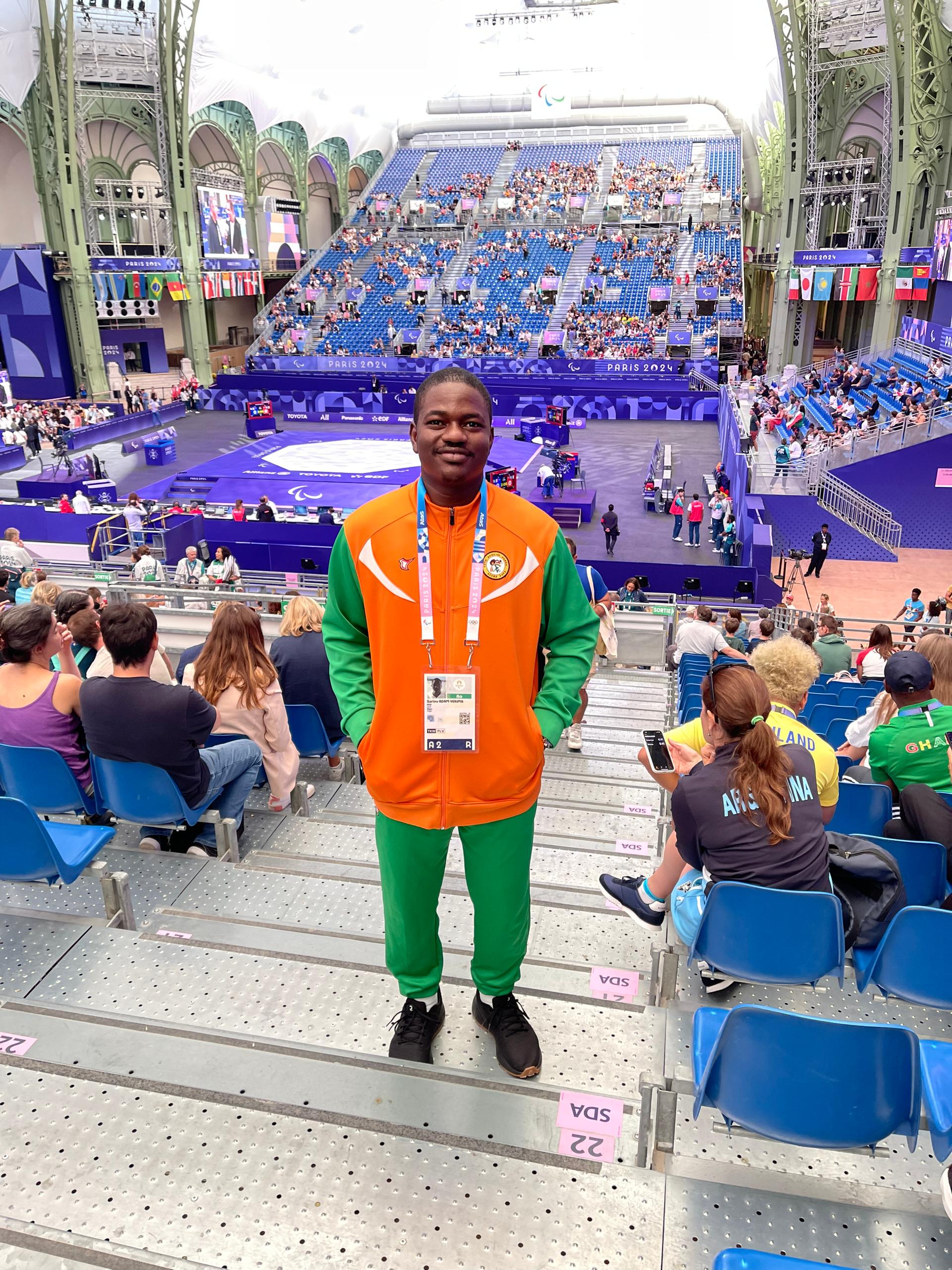Studio Kalangou reporter Sariou Adam Yerima covered the Olympic Games and is currently covering the Paralympics for the Fondation Hirondelle studios. Between two reports, the Nigerian reporter tells us about his first Games.
What were your first impressions of Paris?
As soon as we arrived at Charles de Gaulle airport, volunteers from the Games welcomed us, and I thought to myself, ‘Wow, it's already started!’
They took us to the Olympic Village and I went through so many emotions: there were flags from all the countries, so many buildings and people... It took me a few days to land, to realise what was happening to me. I feel very lucky to be here at the age of 28 only, just three years after starting my career as a journalist. It's a great source of pride to be here, in the middle of the biggest sporting event in the world. I'd like to thank all the people who have made this possible, both in Lausanne and in Niamey.
How do you find the atmosphere?
It's great! I'm meeting people on public transport, everyone is talking to each other and people are very happy. The inhabitants are very welcoming, the volunteers smile all the time and are always there to guide me. Once, I was leaving the Stade de France when a German girl stopped me to ask me to swap pins. It's a culture of the Olympics that really surprised me and it's happened lots of times, even the police asked me for pins from my country. The Games are really a time for sharing and I live every moment to the full.
How did your work as a journalist go?
Well, the organisation of the Games is impeccable and I was able to meet international colleagues. I interviewed athletes from five African countries where the Fondation hirondelle has its studios. As well as working for Studio Kalangou, I did interviews for Studio Tamani in Mali, Studio Yafa in Burkina, Radio Ndeke Luka in the Central African Republic and Studio Hirondelle in the Democratic Republic of Congo. I had a few technical problems, but apart from that it was great. The African athletes were delighted to be interviewed by a journalist from Niger.
Is there an African athlete who has stood out for you?
I'm thinking of Samba Coulibaly, a Malian Paralympic sprinter who qualified for the 100 metres final and finished 7th. He's a young man with a bright future, he's 18 years old, and I hope he'll win a medal for West Africa in 2028 in Los Angeles.
Do you experience the Paralympic Games differently from the Olympic Games?
The only difference is that the Paralympics are more emotional. It's incredible to see the performances of the Paralympic athletes - even most able-bodied people couldn't do what they do!
Otherwise, the conditions are the same, the public enthusiasm is similar and the stadiums are full. Also, there are fewer athletes at the Paralympics, especially from West Africa where parasport is not very well developed.
What would you like to do next?
To learn English and cover the Los Angeles Olympics!





